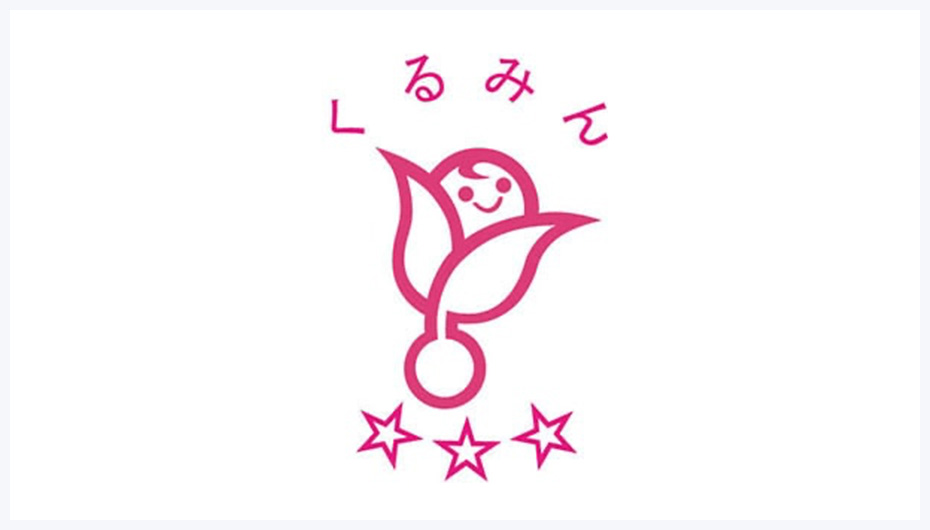Employee Self-realization and Diversity
Creating Worker-friendly Environments
Basic policies and structure
Basic concepts and policies
To foster a transparent and vibrant organizational culture, it is necessary that each and every employee think proactively and achieve goals by working energetically, cheerfully, and appropriately. Believing that the strength of an organization is the sum of its employees’ individual strengths, SECOM strives to create worker-friendly environments that enable all employees to engage in a process of self-realization that will ultimately contribute to the growth of the SECOM Group.
Securing employee work-life balance is an important issue for SECOM, which provides security services 24 hours a day, 365 days a year. We place importance on increased use of paid leave, employee turnover rate reduction and employee satisfaction improvement as key indicators, and implement various measures to create rewarding workplace environments, such as establishing systems that support diverse workstyles according to each employee’s stage of life.
Measures for creating worker-friendly environments
- Promote workstyle reform
- Promote work-life balance
- Advance diversity
- Enrich welfare benefits
Structure
Following our fundamental philosophy of human resource management that states “The growth of employees and the prosperity of the company are inseparable,” the Human Resource Division fulfills a leading role in promoting the creation of worker-friendly environments through cooperation between labor and management. SECOM has also established the following specialized sections.
Project team for improving employee satisfaction
In 2016, SECOM established a team with leading members from the Business Development Department, Operations Division, Sales Division, Administration Division, Techno Installation Services & Facility Management Division, and Human Resource Division. The team cooperates with other departments as necessary and works on measures to improve employee satisfaction.
D&I Promotion staff
Led by the Human Resources Department, which is responsible for SECOM’s personnel strategy, the D&I (Diversity and Inclusion) Promotion staff engage in activities aimed at leveraging the capabilities of each and every employee through respect for individual differences. These activities include promoting the active participation of women.
Promoting work-life balance
SECOM implements policies for promoting work-life balance to enable all employees to utilize their abilities and perform their duties energetically, regardless of the stage in their life. We take various actions to support balance between work and private life.
Initiatives to prevent long working hours
SECOM establishes systems and raises awareness to support employees to work in good health with passion, and with a high level of concentration on their duties, thereby giving their best performance.
In particular, to prevent long working hours, a social issue in Japan, workers and employers concluded the “Article 36 Agreement” (agreement on overtime and holiday work) in accordance with Article 36 of the Labour Standards Act. Specialized staff stationed in the Human Resources Department and related departments cooperate with managers to provide continued guidance on managing and improving working hours.
Additionally, we have constructed mechanisms on our company intranet so that managers can ascertain and check the time that employees arrive and leave from work daily. These measures enable detailed time management and guidance in each workplace.
To raise employee awareness, lights are automatically turned off at a certain time every day to encourage employees to go home. Furthermore, activities are carried out at offices nationwide to persuade employees to make it a habit to leave work on time, thereby maintaining their health and managing their time appropriately. We continue to make sincere efforts to eliminate long working hours.
Promoting vacation usage
Mental and physical refreshment and a fulfilling life are essential to creating motivation toward work. We offer our employees leave systems including a flexible vacation system which can be taken at any time during the year (maximum of 10 consecutive days each year) and a two-week vacation every 10 years. We also actively encourage employees to take paid leave.
In fiscal 2017, rules were revised to increase options, enabling employees to take the two-week vacation in two separate periods (one week each).
Systems for childbirth, childcare, and nursing care
SECOM offers its employees substantial support for childbirth, childcare, and nursing care which surpasses the standards of laws such as the Labor Standards Act.
Maternity leave
Maternity leave can be taken for the six weeks prior to and eight weeks after childbirth, and a childbirth allowance is granted by the SECOM Health Insurance Union.
An additional two weeks of maternity leave prior to childbirth is available to employees who wish to start their leave earlier.
Childcare leave
Employees can take childcare leave until the day before their child turns three years old. Since 2002, our male employees have also started taking childcare leave. SECOM is working to create worker-friendly environments which make childcare easier for both women and men.
In fiscal 2020, a total of 154 employees (including 22 male employees) took childcare leave, and 96.4% of employees returning to work after childcare leave in fiscal 2019 remained with SECOM a year later.
Nursing care leave
To support employees who provide nursing care to family members and wish to return to work after the end of the provision, nursing care leave of up to approximately six months (a maximum of 186 days) is available.
Change/exemption of working hours for child and nursing care
Upon request, employees who are pregnant or raising children who have not yet entered the fourth grade of elementary school (per law, until the child is three years old) can have their working hours changed or exempted, subject to limitations on the length of time.
Many of our employees with children utilize the system to shorten their working hours, and we provide them with notice cards that can be put up on their desks to request cooperation from their coworkers to help them return home earlier.
Employees can also use the system for changing or exempting working hours to provide family care. By providing such systems, we assist employees in balancing family life with work, enabling them to continue working over the long term.
SECOM Life Support Program
We established the SECOM Life Support Program to assist in long-term career advancement through individual review for a location and work style that accommodate the circumstances of each employee. We support individuals based on the following policies.
- Utilize the SECOM Group’s network to support changes to employment location due to reasons such as the need to provide nursing care to family members or work transfer of a spouse.
- Approve temporary leave from work when the employee moves overseas with a spouse who is transferred overseas (maximum of five years).
- Support flexible working styles which consider difficult household circumstances with the need for childcare or nursing care.
Job Return Program
For employees who have left SECOM due to unavoidable reasons such as childbirth, childcare, or nursing care, SECOM offers Job Return Program, which enables employees to apply for returning to work. Because of this system employees can perform their current work without worrying about stopping their career due to future life events.
Support site to balance work, childcare, and nursing care
We operate a website that provides information to support employees in managing both work and childcare/nursing care. Useful information on relevant systems and programs, benefits, as well as a section that accepts a variety of consultations from employees, is available in both the childcare support section and family care support section.
Working on the telework system
Since 2020, as part of our measures to combat the spread of COVID-19, telework has been implemented primarily for administrative work at offices nationwide. By effectively utilizing mobile computers, already distributed to office managers and sales personnel, as well as other computers distributed as part of this effort, roughly 3,200 employees could work from home in May, after the state of emergency was declared.
At SECOM, employees in various positions do their utmost to provide continuous safety and peace of mind around the clock. To prepare for epidemics and disasters, and support a greater work-life balance, we are considering employment rules and positions suitable for adopting a work-from-home system.
Certified as a company supporting childcare
The “Act on Advancement of Measures to Support Raising Next-Generation Children” was enacted in order to construct an environment for the healthy birth and care of children who will lead the next generation of society. SECOM was certified three times, as a company supporting childcare by the Ministry of Health, Labour and Welfare, and received the next-generation certification mark known as Kurumin.
On April 1, 2020, SECOM newly formulated and enacted an Action Plan based on the act. We aim to realize diverse workstyles that allow each employee to maximize his or her abilities, while considering the characteristics of security services that provide uninterrupted services 24 hours a day, 365 days a year, and the importance of promoting diversity and inclusion.

Date of formulation: April 1, 2020
Action Plan by SECOM CO., LTD.
We have formulated the following Action Plan in order to provide worker-friendly environments which enable employees to balance work and childcare.
Planned period: From April 1, 2020 to March 31, 2025
1. Implement various workstyles (telework, etc.) that suit each employee’s circumstances.
- We will create a better working environment, taking into account the impact on productivity and the benefits to the family life of employees.
- We aim to develop systems for diverse workstyles within the planned period.
2. Further promote awareness for systems including childcare leave, especially to male employees.
- We will promote awareness for various systems so that employees can create a life plan that envisions a balance between family and work.
3. Consider expanding the conditions for the current system of shorter working hours for childcare (including extension of the current limit of "up to the first grade of elementary school").
- From fiscal 2020, we will start a survey to ascertain the actual situation of such employees and consider establishing a system within the planned period.
Note: Conditions for the system of shorter working hours for childcare were expanded to "up to the third grade of elementary school" since fiscal year 2022.
Promoting dialogue with employees
SECOM seeks to achieve sustainable growth as a strong, flexible organization that is impervious to the impact of changes in society and the competitive environment. To achieve this goal, we believe that it is important to promote SECOM’s Philosophy and push forward with a virtuous circle: a cycle originating from employee satisfaction, improving service quality by enabling all employees to demonstrate their full potential, enhancing customer satisfaction, earning the trust of society, and ultimately leading to further employee satisfaction. SECOM prioritizes dialogue with employees to foster a healthy, vibrant organizational culture and implement measures to increase employee satisfaction.
Activities of the employee satisfaction project team
The employee satisfaction project team conducts an annual job satisfaction survey of all employees, and strives to improve mutual understanding between the company and its employees through regular labor-management consultations.
Employee job satisfaction survey
SECOM has conducted an employee job satisfaction survey since fiscal 2016. This survey studies not only the employees’ satisfaction about wages and work environments but also continuously assesses from various perspectives areas such as sense of fulfillment in work, work volume, and motivation. The findings are then used in improvement measures, and the survey results are posted on the company intranet.
Overall, the study has found that there is a high level of satisfaction in the feeling of fulfillment provided by work. The level of satisfaction also tends to rise further as employees develop their careers. However, there is still room for improved satisfaction about the amount of work and salaries, and reducing work hours and implementing workstyle reforms remain issues that must be addressed.
Categories for employee satisfaction survey
- Whether the employee finds his/her work fulfilling
- Whether there is any problem which interferes with performing one’s work
- Whether the employee is able to work with a positive attitude
- Whether the employee receives positive feedback from work partners
- Whether there is any problem regarding the amount of work
- Whether there is any problem with the salary or welfare benefits at the company
SECOM Lively Union (The SECOM Employee Union Federation)
SECOM Lively Union (the SECOM Employee Union Federation) was established in 1964, two years after the founding of the company, by employees seeking to ensure the sound growth of SECOM. In accordance with the union membership qualification agreement executed with SECOM Lively Union, SECOM adopted a union shop system in which new employees become members of the labor union when they are hired. Therefore, the union membership rate of SECOM Co., Ltd. is 100%, excluding section managers or persons higher, who are not eligible.
SECOM values dialogue between labor and management. Following the philosophy that the growth of employees is inextricably linked to the company’s prosperity, we have created a strong system of collaboration to achieve common goals. To heighten employee morale, construct a vibrant and healthy organizational culture imbued with the SECOM spirit, and maximize organizational energy, SECOM Lively Union and management, including the President and Representative Director, exchange opinions every month. As a general rule, at branches in each Group company or each prefecture, discussions are held on topics such as improving the workplace environment or operation procedures, and ensuring occupational safety and health. The Union then exchanges opinions with company management at the SECOM Employee Meeting on Organizational Culture and the SECOM Employee Central Council.
SECOM Employee Meeting on Organizational Culture
The SECOM Employee Meeting on Organizational Culture is set up in each region throughout Japan. Company executives and SECOM Lively Union directors, who represent employees, exchange opinions on equal ground.
These meetings, held every month, enable frank and unrestrained discussion aimed at improving daily work and the workplace environment in each region, contributing to the creation of a sound organizational culture.
SECOM Employee Central Council
The SECOM Employee Central Council was established as an opportunity for exchanging opinions on nationwide issues which cannot be resolved at the SECOM Employee Meeting on Organizational Culture held in each region. Council meetings are held every month and are always attended by the President and Representative Director, executives and directors in charge of human resources and operations as well as members of the Central Council from SECOM Lively Union.
In addition, the SECOM Employee Central Council Subcommittee was established as a subordinate organization of the SECOM Employee Central Council. Meetings of subcommittees are held periodically every month in order to discuss company measures or issues requiring continued review, attended by executives and managers in charge of human resources and operations, as well as directors of SECOM Lively Union.
Issues addressed by the SECOM Employee Central Council
- Revision of wages, etc.
- Checking for overwork or unnecessary work
- Maintaining employees’ health
- Promoting the use of paid leave and long-term vacation
- Preventing overwork
- Appropriate operating of evaluation systems
- Recruiting and assigning of personnel
- Advancing diversity
- Preventing harassment
- Wage levels which consider life plans of employees
- Instilling the corporate philosophy
Social
-

Customer-oriented Services -

Leveraging Advanced
Technologies and Partnerships -

Employee Self-realization and Diversity -

Coexistence with Local Communities
